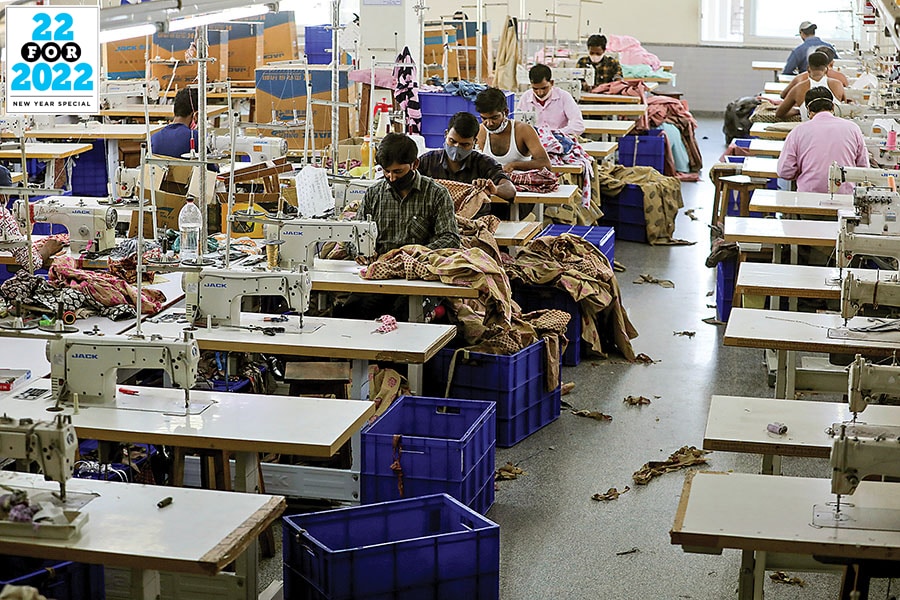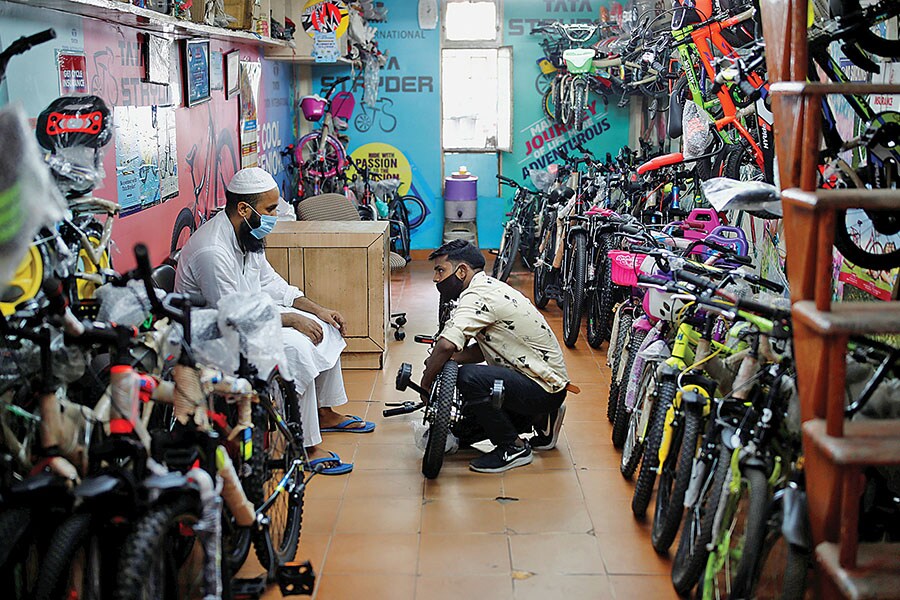
Prioritise small businesses and MSMEs to support inclusive growth: Arvind Mediratta
As a pivotal pillar of India's resilient economy, small businesses and MSMEs require prioritisation for their ability to foster demand, generate employment, and promote innovation, the MD & CEO-Metro Cash & Carry India and Chairperson, Retail & Internal Trade Committee, Ficci, writes
 The government can look at increasing the threshold of loan under Credit Guarantee Fund Trust for micro and small enterprises to provide liquidity lines to small retailers
The government can look at increasing the threshold of loan under Credit Guarantee Fund Trust for micro and small enterprises to provide liquidity lines to small retailers
Image: Anushree Fadnavis / Reuters
 Covid-19 has nudged thousands of MSMEs (micro, small and medium enterprises) to the edge of closure. Grappling with lockdowns, restrictions, liquidity crunch, and business continuity due to tepid demand, the sector has been severely stressed. As uncertainty looms with the emergence of more transmissible variants like Omicron, small businesses can only keep their hopes afloat for the situation to stay well under control. With narrowing revenue streams, it shall be a long road for recovery for the financially stressed sector.
Covid-19 has nudged thousands of MSMEs (micro, small and medium enterprises) to the edge of closure. Grappling with lockdowns, restrictions, liquidity crunch, and business continuity due to tepid demand, the sector has been severely stressed. As uncertainty looms with the emergence of more transmissible variants like Omicron, small businesses can only keep their hopes afloat for the situation to stay well under control. With narrowing revenue streams, it shall be a long road for recovery for the financially stressed sector.
According to MSME ministry data released in May 2021, there are around 63 million MSMEs in India that contribute approximately 29 percent of the country’s GDP. This unorganised segment consists of over 13 million HoReCa (hotels, restaurants and catering) businesses and around 12 million kirana stores. Such is the contribution of the sector that provides a solution to regional imbalance, income inequality and offers huge employment opportunities to over 110 million people. (As per the data published by the Centre for Monitoring Indian Economy, the unemployment rate was at 7 percent in November ’21.) The MSME sector is one of the largest avenues for economic development; nurturing this massive entrepreneurial ecosystem is crucial for the country to achieve its mission of becoming a $5 trillion economy by 2025.
Reeling under mini lockdowns and allied restrictions during the second resurgence of the pandemic, many small businesses across India have been decimated. Several small retailers, especially in the non-food (non-essential) segment selling apparel, footwear, utensils, hardware, etc. were reporting zero sales, and have been forced to shut shop. Apart from this, the sector has long been grappling with regulatory and compliance requirements, licencing mechanisms, complexities of taxation and issues of working capital to ensure adequate liquidity.
The government has periodically been announcing supportive measures for ease of doing business and to provide MSMEs with a liquidity lifeline. One such measure has been the collateral-free automatic loan of Rs 3 lakh crore under ECLGS (Emergency Credit Line Guarantee Scheme) announced last year that came as a tremendous relief for beleaguered businesses. However, these businesses need way more financial cushioning and direct tax relief. To provide more liquidity lines to small retailers and MSMEs, the government can look at increasing the threshold of the loan under Credit Guarantee Fund Trust for Micro and Small enterprises from Rs 2 crore to Rs 5 crore.










